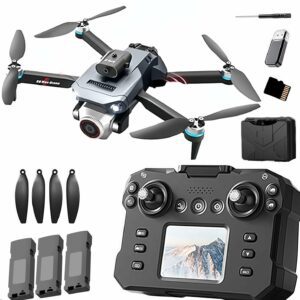Obstacle Avoidance Drones
🔍 What Are Obstacle Avoidance Drones?
Obstacle Avoidance Drones are equipped with sensors—such as infrared, ultrasonic, LiDAR, or visual cameras—that detect nearby objects in real time. This enables the drone to automatically stop, slow down, or re-route to avoid crashes while flying indoors, outdoors, or in tight spaces.
Showing all 9 results
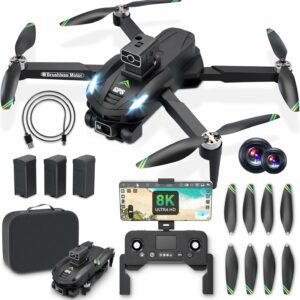
Ascenture V168 8K Drone with Dual Camera & Optical Flow Positioning
- Camera:
- Flight time (m):
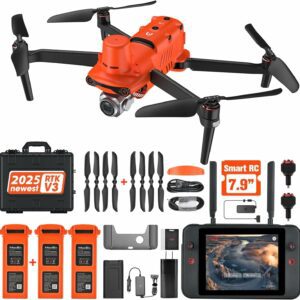
Autel EVO II PRO 6K Drone with 1-Inch CMOS Sensor and Adjustable Aperture
- Camera:
- Flight time (m):
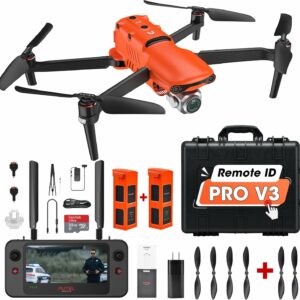
Autel Robotics EVO 2 Pro V3 Drone with 6K HDR Camera – Professional Aerial Precision
- Camera:
- Flight time (m):
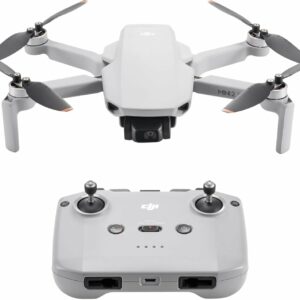
DJI Mini 2 SE (MT2SD) – Lightweight 2.7K Drone with 10KM Range & 3-Axis Gimbal for Smooth Aerial Footage
- Camera:
- Flight time (m):
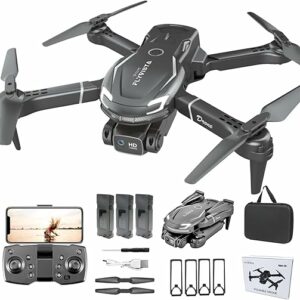
FLYVISTA V88 Drone – 8K Dual-Camera Foldable Drone with GPS and Obstacle Avoidance
- Camera:
- Flight time (m):
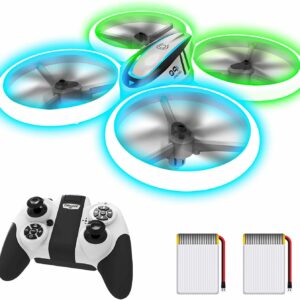
HASAKEE Q9s Drone for Kids – Safe, Fun, and Easy-to-Fly Quadcopter
- Camera:
- Flight time (m):
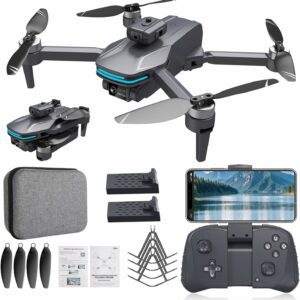
SUMEAUT S101S Foldable Drone with 1080P Camera – Beginner-Friendly Aerial Fun
- Camera:
- Flight time (m):
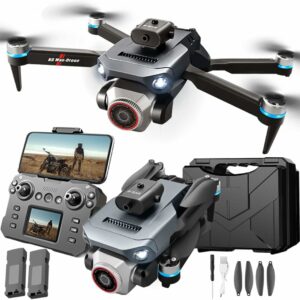
TRANSLISTING K6 Max Drone with 4K Triple Camera – 360° Obstacle Avoidance, Optical Flow Positioning, Foldable Design
- Camera:
- Flight time (m):
🧠 Why Is Obstacle Avoidance Important?
- Flying drones safely requires spatial awareness, especially in areas with trees, buildings, or other potential hazards. Obstacle avoidance technology:
- Prevents collisions during manual or autonomous flights
- Enables safer operation for beginners
- Supports smooth navigation in dynamic environments
- Protects your investment from damage
🎯 Use Cases for Obstacle Avoidance Drones
Aerial Photography in Crowded Spaces
Capture cinematic shots in dense forests, urban areas, or near buildings without fear of crashing into obstacles.
Indoor Mapping & Inspection
When flying indoors, GPS is limited. Obstacle avoidance ensures precision and prevents costly bumps during warehouse or infrastructure inspection.
Beginner-Friendly Flying
New pilots benefit greatly from obstacle sensors that assist in avoiding mistakes during takeoff, landing, and mid-air maneuvering.
Delivery & Autonomous Missions
For drone deliveries or pre-programmed flights, obstacle avoidance ensures the drone adapts to unexpected objects like birds, people, or vehicles.
🧩 Key Features of Obstacle Avoidance Drones
- Front, rear, side, and downward-facing sensors
- AI-powered flight path correction
- 3D mapping and terrain recognition
- Automatic braking and rerouting
- Visual-inertial odometry for accurate positioning
❓ Frequently Asked Questions (FAQs)
🔸 How do obstacle avoidance drones work?
They use various sensors to detect objects and trigger evasive maneuvers—either stopping the drone, flying around the obstacle, or hovering until clear.
🔸 Are all drones equipped with obstacle avoidance?
No. Obstacle avoidance is typically found in mid- to high-end consumer or professional drones. Entry-level models may lack this feature.
🔸 Can drones avoid obstacles in all directions?
Advanced drones offer omnidirectional avoidance (360°), while others may only have sensors on the front or bottom. Always check the specifications.
🔸 Do obstacle avoidance features work at night?
Some drones use infrared or vision-based sensors that may be limited in low light. Higher-end models use technology that works even in the dark.
🔸 What’s the best obstacle avoidance drone for beginners?
Models like DJI Mini 4 Pro or DJI Air 3 are great options—they combine intelligent safety features with ease of use and excellent camera quality.

